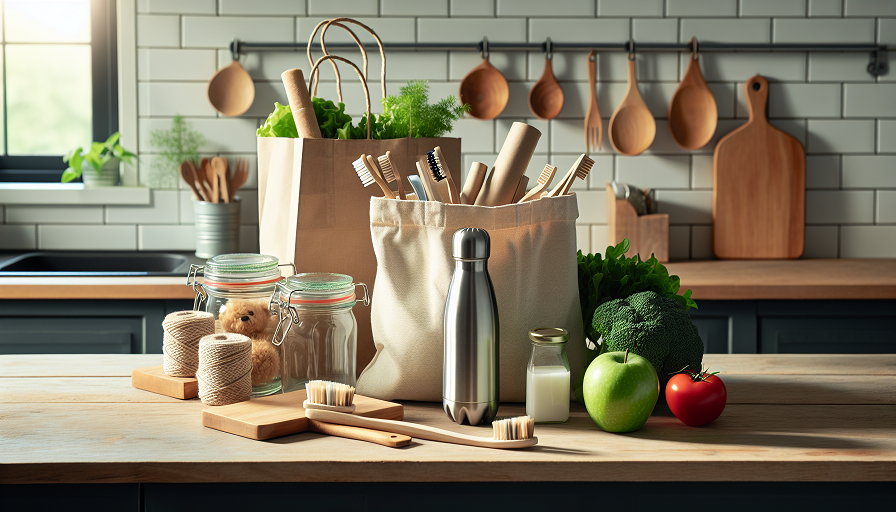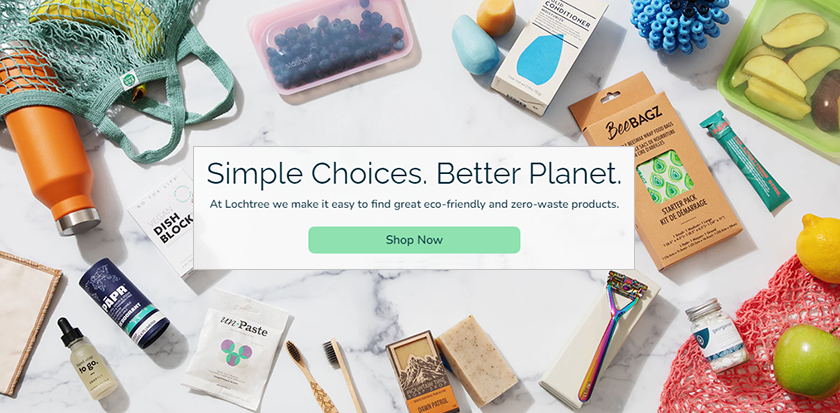
Zero-waste living is more than a lifestyle—it’s a mindset. While reusable bags and compost bins are part of the equation, they only scratch the surface. The true power of zero-waste lies in embracing minimalism, the art of living with intention and clarity. Minimalism helps us consume less, appreciate more, and reduce waste in ways that ripple through every aspect of life.
What Does a Minimalist Mindset Mean?
At its core, minimalism is about focusing on what truly matters and letting go of what doesn’t. It’s not about deprivation or sacrifice—it’s about freeing yourself from clutter, both physical and mental, to create space for purpose and joy.
Living with Intention
Minimalism encourages intentionality in every choice you make, from the food you buy to the activities you prioritize. When applied to zero-waste living, this mindset shifts your focus to thoughtful consumption and mindful disposal.
- Ask yourself, “Do I need this, or do I just want it?” before making a purchase.
- Consider the lifecycle of an item: Where did it come from, and where will it go?
Quality Over Quantity
A minimalist mindset values quality over quantity. Investing in well-made, durable items reduces the need for frequent replacements, cutting down on waste and saving money in the long run.
Decluttering as a First Step
Before you can embrace minimalism, you need to let go of excess. Decluttering isn’t just about tidying your home—it’s about examining your relationship with “stuff” and making room for what truly matters.
Start Small
Tackling an entire house can feel overwhelming, so start with one area at a time. For example:
- Sort through your wardrobe and donate clothes you no longer wear.
- Clear out your pantry, prioritizing fresh, reusable, or package-free items.
- Organize your desk and get rid of old papers, broken pens, and unnecessary gadgets.
Adopt the “One In, One Out” Rule
For every new item you bring into your home, remove one. This rule prevents clutter from creeping back and encourages thoughtful purchasing habits.
Let Go Responsibly
Decluttering doesn’t mean creating waste. Donate, recycle, or upcycle items you no longer need to ensure they’re given a second life rather than ending up in a landfill.
Minimalist Habits for Zero-Waste Living
Once you’ve decluttered, maintaining a minimalist mindset involves adopting habits that align with your zero-waste goals. These habits not only reduce waste but also simplify your daily life.
Embrace “Enough”
Minimalism teaches us to recognize when we have enough, whether it’s clothes, kitchen gadgets, or home decor. This mindset reduces impulse purchases and helps you appreciate what you already own.
Choose Multi-Use Items
Items that serve multiple purposes are a minimalist’s best friend. For example:
- A mason jar can be a drinking glass, storage container, or even a lunchbox.
- A scarf can double as a bag or a decorative accessory.
By focusing on versatile items, you minimize clutter and waste.
Limit Disposable Products
Minimize single-use items like paper towels, plastic wrap, and disposable razors. Replace them with reusable alternatives, such as cloth towels, beeswax wraps, and safety razors. These changes save resources and money over time.
Aligning Minimalism with Consumption
Minimalism transforms the way you consume, encouraging you to think critically about your purchases and their impact. Here’s how to align your buying habits with your zero-waste goals.
Shop Secondhand
Thrift stores, online marketplaces, and community swaps are excellent places to find what you need without contributing to new production. Whether it’s clothing, furniture, or electronics, secondhand shopping reduces waste and saves money.
Prioritize Sustainable Brands
When buying new, support brands that prioritize sustainability and ethical practices. Look for companies that use recycled materials, reduce packaging, and ensure fair labor practices.
Avoid Over-Packaging
Be mindful of packaging waste by choosing products sold in bulk or without packaging altogether. Bring your own containers to refill stations, and opt for items in recyclable or compostable materials.
Benefits of a Minimalist Mindset for Zero-Waste Living
Adopting minimalism isn’t just about reducing waste—it’s about creating a more fulfilling and balanced life. Here’s how this mindset enhances your zero-waste journey.
Save Time and Energy
Owning less means spending less time cleaning, organizing, and maintaining your belongings. With fewer distractions, you can focus on what truly matters, whether it’s family, hobbies, or personal growth.
Reduce Stress
Clutter isn’t just physical—it’s mental. A minimalist environment creates a sense of calm and clarity, reducing stress and boosting productivity.
Live More Sustainably
Minimalism aligns perfectly with sustainability. By consuming less and wasting less, you reduce your environmental footprint while saving money and resources.
Sharing Minimalism with Others
A minimalist mindset can be contagious. By sharing your journey with others, you can inspire them to adopt zero-waste habits and create a ripple effect of positive change.
Lead by Example
Show friends and family how minimalism has improved your life. Whether it’s through a clutter-free home or a reduced monthly budget, your actions can motivate others to make changes.
Gift Thoughtfully
Embrace thoughtful, zero-waste gifting practices, like giving experiences, homemade items, or consumables. These gifts are meaningful and avoid adding unnecessary “stuff” to someone else’s life.
Join Communities
Engage with local or online zero-waste and minimalist communities to share tips, learn from others, and build a network of like-minded individuals.
Declutter Your Life, Reduce Your Waste
Minimalism and zero-waste living go hand in hand, offering a path to a simpler, more intentional life. By consuming less, valuing quality, and focusing on what truly matters, you can create a sustainable lifestyle that benefits both you and the planet. The journey starts with a single step—or in this case, a single decision to embrace enough.

